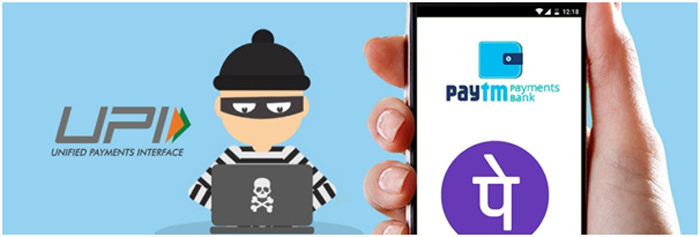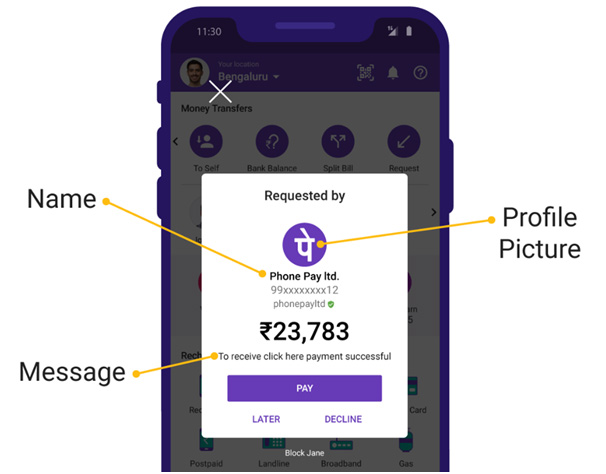The post Private security agencies get relief for multi-state operations first appeared on Masterguard.
]]>The earlier rules (of 2006) only allowed two designations – ‘guard’ and ‘supervisor’. “There are more than 13,000 registered agencies engaged in providing private security that are expected to generate more than nine million jobs,” said a government official, who did not wish to be identified. “The total strength of police and paramilitary forces across states is estimated to be two million. It was during the lockdown that private security agencies were brought into the essential services to aid the police forces.”
As per the new rules, the antecedents of agencies and their directors can now be verified using the Crime and Criminal Tracking Network System (CCTNS) and Interoperable Criminal Justice System (ICJS). “The digital verification can be done by the controlling authority in the state where the private agency is applying for the licences. We have also reduced the time limit to 15 days from 90 days for completion of verification,” said the official.
Similarly, the process of granting licences by the state agencies will have to be completed within 60 days, as per the new rules. Under the 2006 rules, the owners of private security agencies had to undergo training on subjects such as internal security and disaster management while applying for another licence in another state. Now, the requirement for training after the first licence has been done away with.
Source: Economics Times
The post Private security agencies get relief for multi-state operations first appeared on Masterguard.
]]>The post 3 Steps to keep workplace safe from covid-19 first appeared on Masterguard.
]]>- Stop handshaking-use other noncontact methods of greeting.
- Clean hands at the door and schedule regular hand washing reminders by email
- Create habits and reminders to avoid touching their faces and cover coughs and sneezes
- Disinfect surfaces like doorknobs, tables, desk, and handrails regularly
- Increase ventilation by opening windows

Be careful with meetings & travel
- Use videoconferencing for meetings
- When not possible, hold meetings in open, well-ventilated spaces
- Consider adjusting or postponing large meetings or gatherings
- Assess the risk of business travel
Stay home if you are sick to avoid further spread of the virus.

Hire an Experienced, Trusted and reliable Security Agency.
-Expert Security Consultancy
-Access Control & Patrolling
-Emergency Fast Response Team
-Securing Perimeter
-Trained and Experienced Guards
-Security Risk Assessment
Handle food carefully
a) Limit food sharing
b) Ensure strict hygiene to be practised at cafeterias
c) Strengthen health screening for cafeteria staff and their close contacts
The post 3 Steps to keep workplace safe from covid-19 first appeared on Masterguard.
]]>Fuelled by internet and mobile penetration, digital payments have seen rapid growth in India, giving rise to multiple cashless payment applications and systems. According to the EY Global Fintech Adoption Index 2019, India is becoming a forerunner in global financial technology (fintech) adoption at 87 per cent, along with China. Data from the Reserve Bank of India (RBI) highlights that the total volume of digital payments increased nine times over the past five years.
 The rise in digital payments has not only opened multiple avenues for businesses to explore online payment services, but also led customers to prefer this mode in almost all aspects of their daily lives—from small-value transactions to very large purchases. However, there are roadblocks to this frenzied adoption of digital payment. These include frauds and scams, data protection issues, security concerns, infrastructure requirements, and lack of awareness about the risks linked to the digital ecosystem. Papid growth in the digital payments data economy has led to increasing cyber-attacks, information leakage, data theft, as well as malware and ransomware attacks in recent times. Consumers have become vulnerable to newer and more complex frauds. In 2017-18, the RBI reportedly recorded over 2,000 cyber frauds at banks, amounting to over Rs 100 crore.
The rise in digital payments has not only opened multiple avenues for businesses to explore online payment services, but also led customers to prefer this mode in almost all aspects of their daily lives—from small-value transactions to very large purchases. However, there are roadblocks to this frenzied adoption of digital payment. These include frauds and scams, data protection issues, security concerns, infrastructure requirements, and lack of awareness about the risks linked to the digital ecosystem. Papid growth in the digital payments data economy has led to increasing cyber-attacks, information leakage, data theft, as well as malware and ransomware attacks in recent times. Consumers have become vulnerable to newer and more complex frauds. In 2017-18, the RBI reportedly recorded over 2,000 cyber frauds at banks, amounting to over Rs 100 crore.
Below are some digital payment scams you need to look for to reduce the probability of falling prey to cyber crimes
1. The remote access mobile application scam
Fraudsters, who had listed fake numbers online under an NGO’s name, gained access to a Mumbai resident’s debit card details by asking her to download Anydesk, a remote desktop software tool, which provides a third party a complete view of the user’s screen. She wanted to transfer funds to the NGO to cremate her pet. Instead, her debit card details were compromised and Rs 30,000 was withdrawn from her bank account.

Lessons to learn
Do not seek help from strangers to complete payment transactions. Do not download apps, except official ones, recommended by seemingly-helpful people, even if they claim to be bank staff.
2. Trap for gullible insurance seekers
In this, scammers prey on an individual’s inability to spot the difference between the official and fake portals of the insurance regulator. A counterfeit portal going by the URL www.irdaionline. org managed to sell fake policies to insurance seekers until the Irdai issued an alert, and the URL was blocked.
Lessons to learn
Irdai does not sell insurance policies. Stay away from portals misusing domains that are akin to regulators’ offi cial ones to swindle funds.
3. Phishing smses promising income tax refund
A Mumbai-based private sector employee received a link, purportedly from the income tax department, regarding a tax refund he was eligible for. Once he clicked on the link, he was directed to a mobile application that got downloaded on his phone. Tricksters elicited his account access details and siphoned off money.
Lessons to learn
The income tax department directly credits the refund to the bank account mentioned in your I-T return form. Do not trust any messages, links, online forms or calls seeking additional account/card details.
4. The KYC update hoax
An IAS officer in Udaipur lost Rs 6 lakh when she clicked on a fraudulent link asking her to update her KYC. She was prompted to enter her account details and the OTP received, following which she received messages from her bank notifying her of debits worth Rs 6 lakh.
Lessons to learn
Do not click on links received through SMSes. Rely on official websites or bank branches to complete the process, if requir ..
5. Simpleto-crack passwords
Here, victims make hacking an effortless job for hackers. The United Kingdom’s National Cyber Security Centre (NCSC) recently released a list of ‘most hacked’ passwords. Over 23 million accounts worldwide were breached as they had 123456 as their passwords.
Lessons to learn
While the data pertains to the UK, it is a pointer to the hazards of using passwords and PINs that are easy to decode.
6. Fake UPI-based payment links
Fraudster asked the victim, a Pune-based trader, to transfer a nominal amount of Rs 10 to a mobile number from his digital wallet. It was presented as ‘registration fee’ to initiate the online purchase of a scooter. Subsequently, he received payment links where he had to enter his UPI ID and OTP received and send it back to the fraudster. The information was used to transfer Rs 1.53 lakh out of his accounts.
Lessons to learn
Transact only through the offi cial BHIM or bank UPI apps. Do not use links sent by unknown entities, even if they seem authentic.
7. Fraudulent NPCI/UPI/BHIM handles and portals
Myriad Twitter handles masquerading as @NPCI_BHIM official helpline handle have mushroomed on the micro-blogging site. The fake accounts trick customers looking for help to reveal their account, wallet or card details.
Lessons to learn
Look for verified-by-twitter blue ticks while interacting with National Payments Corporation of India (NPCI), bank or payment wallet helplines.

8. Lack of awareness of UPI pay options
A Pune resident who wished to sell his air-cooler was tricked by a prospective buyer who agreed to pay `9,000 through a UPI-based app. However, the latter sent a ‘pay’ request to the former, who promptly authorised it without realising that the amount would be debited from, not credited to, his account.
Lessons to learn
Use of newer technologies calls for additional caution. Since UPI-based apps enable push (pay/send) and pull (receive/collect) transactions, newer users could get confused. Understand the processes thoroughly before rushing to use them.
9. Request Money Fraud
The ‘Request’ feature on any digital payment app allows a person to send you a payment request where the amount is filled in by the requester. You can pay by just clicking on the ‘Pay’ button and entering the UPI PIN.You can also ‘Decline’ the request, in which case the request stands invalid. Before declining, you can block the requester as well — this will prevent all future payment requests being raised to you by that person.
You post a product listing on OLX, Quikr or a similar site. The fraudster spots your listing and gives you a call saying that are interested in buying the product. They also tell you that they’re unavailable to pay in-person and would like to make a money transfer using the digital payment app. They might build on their credentials by telling you that they work for the Army, the Police, the Government etc.

The fraudster will then ask you to open your digital payment app while you are on the call, and send you a collect-call request for the same amount as your listing. A lot of times the fraudsters use the digital payment logo as their profile picture, which you can see in the collect call request. They also put a message right above the ‘Pay’ button with instructions like ‘Once you pay, you will receive money.’
Lessons to learn
This is a fraudulent message. You never need to click on the ‘Pay’ button or enter your UPI pin to receive money.
“It takes years to build your wealth and few minutes of cyber-incident to ruin it.”
The post 9 Digital payment-related fraud and know how you can avoid these scams first appeared on Masterguard.
]]>
Theft Prevention begins before you even leave your vehicle
- Never leave your valuables out on your seats, dashboard or floor .
- Keep a Record of serial numbers of Laptop, Tablet, Cell phone, Camera Etc.
- Park in the proximity of other vehicles. Look for well-lit area or busy lots with plenty of pedestrian and vehicle traffic.
- Choose a lot with an attendant over one without.

General Precautions
- Close all windows and lock all doors before leaving your car(even while driving)
- Be aware of your surroundings and trust your instincts, if something does not feel right, find another place to park.
- Conceal your keys, do not display it or leave unattended.
- Be conscious of the fact that it can happen with anyone any time

Precautions to take while you are sitting inside the car
- Mark people who are roaming around your car repeatedly and seem to be keeping a watchful eye on you and your car.
- Avoid purchasing things from roadside or Traffic light while you are sitting inside the car.
- If somethings doesn’t feel right(Flat Tyre/Broken Window/or someone informing about the leaking coolant etc) don’t stop the car immediately to check. Park it in a safe area like a Gas station, Restaurant Parking Area or near Security post of any society or a building.
Hire an Experienced,
Trusted and reliable Security Agency.
-Expert Security Consultancy
-Foot Patrolling
-Emergency Fast Response Team
-Parking Management
-Vehicle Security
-CCTV Surveillance
-Securing Perimeter
-Trained and Experienced Guards
The post Safety Tips to Prevent Car Break Ins first appeared on Masterguard.
]]>HOME: A place where a person feels secure, cheerful, comfortable and relaxed. 
But what if, your home is not safe anymore?
With rising crimes in India every year, we need to be aware of the possible threats to our personal space. Hiring a good security experts will be the best solution to this serious concern.
In 2016, highest number of cases of Burglaries/House break-ins were
reported in India. It was observed that most of the cases occurred during the day time between 6 a.m. to 6 p.m. while people are at work or running errands. Burglars are mostly attracted to homes that do not have a Home Security System and most of the break ins are done by individuals under the age of 28 years. Adding to it, burglars do advance planning of the target area and collect personal information of the key individuals living in the house.

INCREASE DETERRENTS

(a) Warning signs can be displayed around the perimeter of your home.
(b) Security(motion) lighting particularly over access points
(c) Surveillance Systems & Home Monitoring System along with contact sensors
DECREASE ATTRACTANTS

(a) Mail & newspaper deliveries can be stopped or arrangements made for a neighbour or friend to pick them.
(b) Do not post anything on social media about your plans prior to travelling.
(c) Bushes & Tress near sidewalk, driveways & gates should be pruned away to eliminate hiding places & increase visibility to & from the street
ACCESS POINT HARDENING

(a) Barbed fencing around the boundaries.
(b) Exterior doors should be solid core with deadbolt locks keyed on both sides and make sure house number is clearly visible at night to enable emergency services to identify your home.
(c) Security Lock doors & secure windows by a secondary locks .
(d) Neighbour first policy and extra keys retained with a trusted neighbour.
Hire an Experienced Trusted and reliable Security Agency.
- Visitor Management
- Household Help Management
- Courier/Parcel Management
- Emergency Fast Response Team
The post Safety Tips To Keep your Home Safe first appeared on Masterguard.
]]>Every 15 seconds, a car is stolen worldwide, which is a shocking fact & quite a sad incident for the one whom this tragedy befalls. 
What is more shocking is the fact that less than 10 per cent cases are solved by the police. Moreover, a motorcycle is over twice as likely to be stolen than a car.
The investigators believe that thieves are professional and they have all devices with them which can break the security apparatus of any vehicle. Lack of police patrolling in the area especially after dark further adds to the ease with which these thieves get away with their prey. Most of these events occur when owners do not pay attention to safety of their car at all. The lack of security features in vehicles is also one of the reasons why thieves get better of the police and vehicle’s own security system.
INSTALL SECURITY SYSTEM

- Car Immobiliser: It will prevent a car from being started by someone who doesn’t have the proper key.
- Car Tracking System
- Steering Locks/Gear Stick and Handbrake locks.
- Vehicle Alarm System
GENERAL PRECAUTIONS

- Close all windows and lock all doors before leaving your car.
- Be aware of your surroundings and trust your instincts.
- Conceal your keys, do not display & keep them safe.
- Keep your Keyless fob in a metallised signal blocking faraday pouch or wallet that blocks the RF signal emanatory from the key.
SOME OTHER IMPORTANT MEASURES

- Get your CAR covered under insurance.
- Marking/ Etching: Marking can be as basic as writing on various parts with invisible ultra violet pen and etching involves ingraining your car’s serial/ Registration number into the windows and light covers of your car.(This will help you find your car)
Hire an Experienced, Trusted and reliable Security Agency.
- Expert Security Consultancy
- Foot Patrolling
- Emergency Fast Response Team
- Parking Management
- Vehicle Security
- CCTV Surveillance
- Securing Perimeter
- Trained and Experienced Guards
The post Safety Tips To Avoid Vehicle Theft first appeared on Masterguard.
]]>